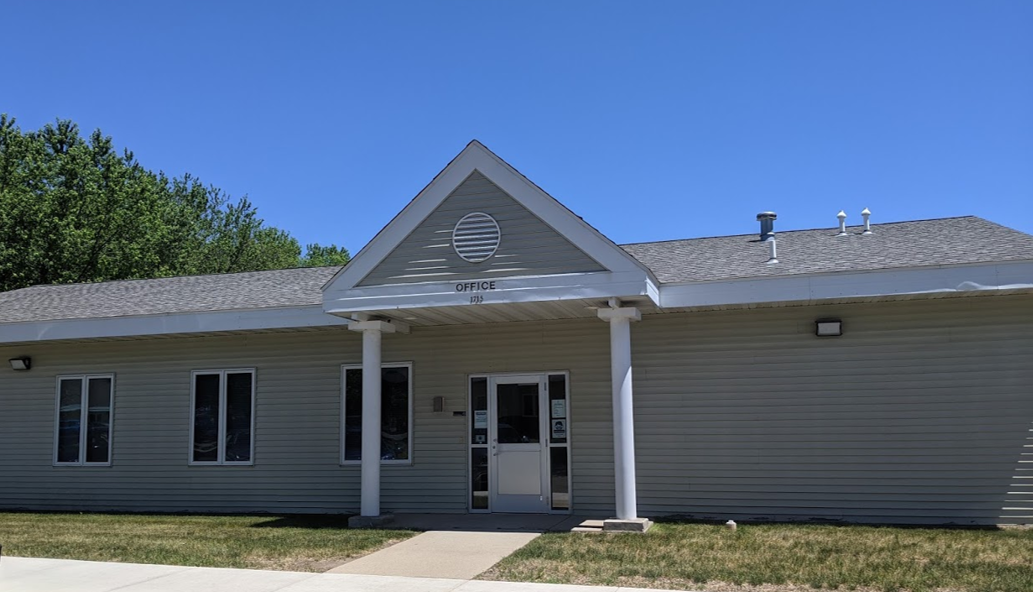Leo A. Hoffmann Center

Overview
Leo A. Hoffmann Center is a mental health treatment center for people seeking treatment near Nicollet County. As part of their treatment modalities for recovery, Leo A. Hoffmann Center provides group counseling during treatment. Leo A. Hoffmann Center is located in Saint Peter, Minnesota, accepting cash or self-payment for treatment.
Leo A. Hoffmann Center at a Glance
Payment Options
- Cash or self-payment
- Medicaid
- State-financed health insurance plan other than Medicaid
- Private health insurance
- State mental health agency (or equivalent) funds
Assessments
- Comprehensive mental health assessment
- Comprehensive substance use assessment
Age Groups
- Children/adolescents
Ancillary Services
- Court-ordered outpatient treatment
- Family psychoeducation
Treatment At Leo A. Hoffmann Center

Conditions Treated
Mental health treatment:
Mental health services are essential during treatment for drug and alcohol addiction, whether you receive treatment in an inpatient or outpatient setting. While receiving inpatient care, you can expect to have round-the-clock access to mental health therapists and medical staff. Additionally, you will likely receive a number of different therapies and mental health options like individual and group counseling, addiction and relapse prevention education, and coping skills training.
Substance use treatment:
Substance use rehabilitation is a structured program aimed at assisting individuals in overcoming their dependencies on drugs or alcohol. Through a combination of medical detoxification, counseling, and various therapeutic approaches, these programs strive to address the physical and psychological aspects of addiction. The goal is to equip individuals with the knowledge, skills, and support necessary to attain lasting sobriety, while also working to identify and address the underlying issues contributing to substance misuse. By fostering a supportive environment, substance use rehabilitation centers provide a pathway towards a healthier, substance-free life.
Co-occurring Disorders:
Dual-diagnosis rehabs are usually the appropriate solution to treat co-occurring mental health and substance abuse disorders. These facilities typically employ medical and behavioral experts who use a range of interventions, together with the right healing environment, for you to achieve and sustain long-term recovery. Treatment usually includes evidence-based therapies (like cognitive behavioral therapy), recovery support meetings, 12-step facilitation, psychoeducation, skills training, and group therapy.

Levels Of Care
Hospital inpatient treatment:
Inpatient treatment involves a comprehensive residential therapeutic program where patients stay on-site for a duration typically ranging from 30 to 90 days. This immersive environment offers structured support, ensuring safety and a focus on recovery. Therapies provided include individual and group counseling, cognitive-behavioral therapy, holistic treatments, family therapy sessions, and experiential therapies. The aim is to address addiction or mental health disorders' physical, emotional, and psychological aspects, laying a robust foundation for sustained healing.

Treatment Modalities
Group counseling:
Group Counseling is a therapeutic approach where individuals come together under the guidance of a trained counselor to share experiences, offer support, and gain insights. This collective format promotes mutual understanding and growth, allowing participants to learn from one another's perspectives and challenges.
Cognitive behavioral therapy:
Cognitive Behavioral Therapy (CBT) is a therapeutic approach that emphasizes the interconnectedness of thoughts, emotions, and actions. It promotes healthy reactions to thoughts and emotions, steering individuals away from harmful responses such as substance abuse. Proven effective for various addiction recoveries, CBT enhances an individual's self-awareness and self-control. Through CBT, individuals learn to better gauge their emotional well-being, communicate more effectively, and handle stress without resorting to drugs or alcohol.
Dialectical behavior therapy:
Dialectical Behavior Therapy (DBT) is an evolved version of Cognitive Behavioral Therapy (CBT) that aims to assist individuals in recognizing and influencing the interplay among their thoughts, emotions, and actions. DBT is particularly beneficial for those grappling with self-harming behaviors, including self-inflicted injuries like cutting, as well as suicidal ideations or tendencies. Clinically, it has shown effectiveness in managing intense emotions and conditions such as Borderline Personality Disorder.
Activity therapy:
Activity therapy is a therapeutic approach frequently used to assist individuals in their recovery from physical addictions or emotional challenges. The primary objective of this therapeutic modality is to involve the individual in creative activities that promote positive changes in their thought patterns. This form of therapy can be conducted one-on-one with a therapist or within a group setting. The ultimate aim of Activity Therapy is to alleviate stress and anxiety while fostering increased self-confidence and improved social interaction skills.
Ancillary Services
Special Programs
- Criminal justice (other than DUI/DWI)/Forensic clients
- Clients who have experienced trauma
- Children/adolescents with serious emotional disturbance (SED)
- Persons with post-traumatic stress disorder (PTSD)
- Persons 18 and older with serious mental illness (SMI)
Contact Information
DISCLAIMER: The facility name, logo and brand are the property and registered trademarks of Leo A. Hoffmann Center, and are being used for identification and informational purposes only. Use of these names, logos and brands shall not imply endorsement. BetterAddictionCare.com is not affiliated with or sponsored by Leo A. Hoffmann Center.

